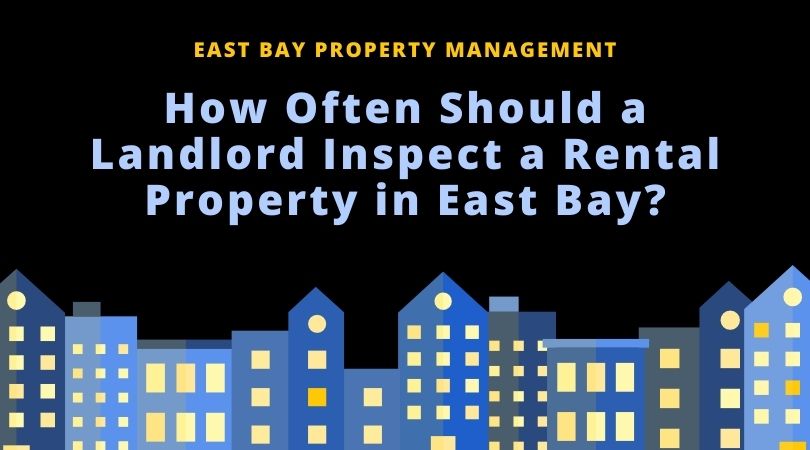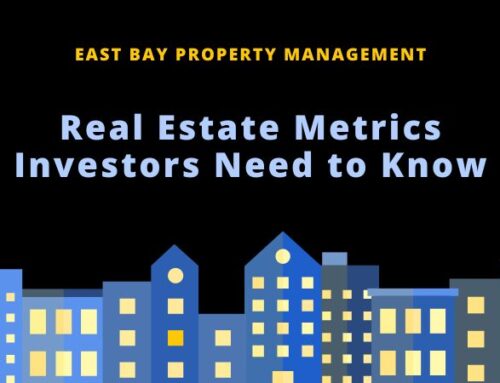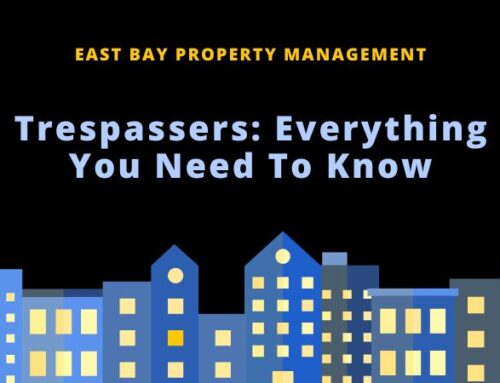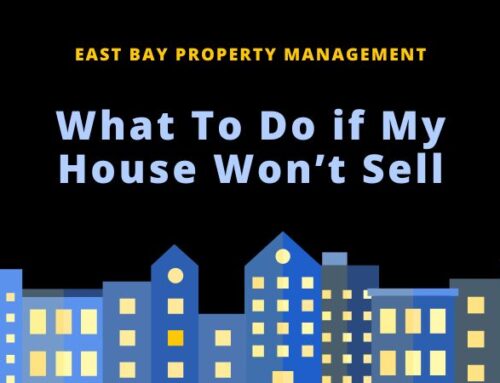As a landlord, it’s easy to get caught up in the hustle and bustle of life but taking the time for routine maintenance makes managing your property not only better but also easier! Regular inspections will help you maintain your property’s condition which makes your property attractive both to current tenants and future tenants.
One of the most important benefits of regularly inspecting your property is that it allows you to notice repairs that need to be addressed before they grow into a larger issue. This not only saves you money in the long run, but it also ensures that your current tenants feel taken care of.
Respecting your tenants and making sure that they don’t feel that their living space is constantly disrupted is important. To make sure of this and to make sure that no tenancy laws are broken, regular inspections need to happen at the appropriate time.
When Should You Inspect Your East Bay Rental Property?
Your tenants enjoy certain rights when they move into your rental property. One of those rights is to help ensure that you, the landlord, don’t interfere with their day-to-day living.
In the case of unannounced disruptions, know that your tenant has the right to discontinue paying rent. Some tenants may even opt to terminate their lease early without bearing any consequences for early termination.
You want to ensure your tenants are aware of any inspections or disruptions.
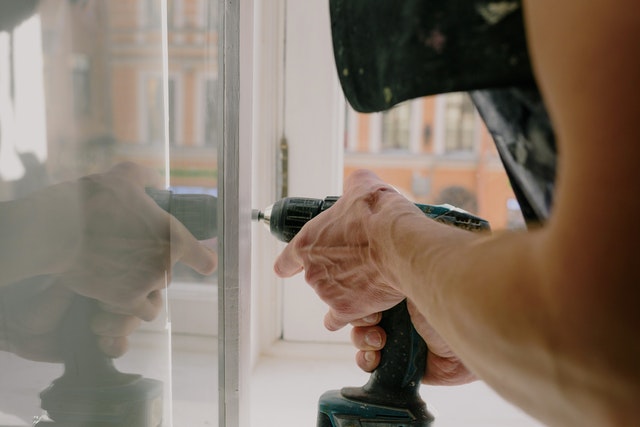
We recommend that inspections be scheduled during appropriate times of the day like usual working hours. It’s ideal if the tenant can be present for the inspection. The tenant should also receive the notice for inspection a whole 24 to 48 hours before your arrival. In addition, they should also consent to the inspection.
What Are the Most Suitable Times to Inspect Your Rental Property?
Here are some examples of times when it’s a good idea to perform an inspection of your property. This will allow you to address any concerns or repairs proactively:
During Move-ins and Move-Outs
An inspection before the tenant moves in confirms that every room is in good condition and that the appliances are working. Another inspection at the end of the lease (move-out inspection) is ideal as well. This allows you to make note of any damage to the property by the tenant and address those damages with the tenant, as per their lease agreement. It also provides you with an opportunity to get the property ready for future tenants.
It’s important that you let your tenants know they will be getting a thorough inspection before and after their lease term begins and should be clearly outlined in their lease agreement.
Checking for Disallowed Tenants
When you rent out your property, it can be hard to know who’s living there. This is especially true if a tenant starts hosting friends, partners, or family members.

Your lease agreement should have a provision that outlines the applicable rules regarding roommates. Here is an insight into some of the rules to be included:
- Potential roommates must first undergo the rigorous screening process before they can be approved as responsible tenants.
- The potential roommate should sign a contract with the landlord. The new lease contract ensures that he or she will foot their rent share.
- Joint and several liability is a great way to protect yourself from any legal issues that may arise with an investment property. There should be a provision for this clause in the lease agreement with the potential roommate.
If you suspect your renters may be housing unauthorized people, it’s best to do an immediate inspection. Possible evidence for this includes extra rooms being used and additional furniture or observing that another person is staying on the property for a period of time that does not line up with a typical visit.
Confirm Any Property Maintenance Needs
It’s crucial to check your rental property for any issues before they escalate. Sometimes tenants fail to report these issues or simply aren’t aware of what needs fixing. Regular inspection ensures that you are always aware of the status of your property.
We recommend you perform a property maintenance check during transition between seasons or after severe weather like heavy rain. It’s important not only to check your property for damage but also to make sure everything is in good working condition.

This type of attention allows you as a landlord to make sure that your current tenants are living in a space that is well taken care of and that unrented units are kept in good condition for future tenants.
Missed Rental Payments
If you notice that your tenant has fallen behind on their rent, don’t hesitate to stop by. Not only is this a prudent move, but it shows that you care about your tenant. Your renter may have gotten sick or lost a friend or family. Acting with care and attention allows you to build a good long-lasting relationship with your tenants.
If your tenant has continuously failed to pay their rent on time or at all, the approach you take need to reflect the severity of the issue. Act as per outlined in your lease agreement and start the eviction process if necessary. In the case that your property is being poorly maintained or the rent isn’t getting paid on time, don’t take matters into your own hands.
If you’re not sure of the procedures behind evictions or any other legal aspect of property management, consult with the premier property service provider in East Bay, East Bay Property Management!
Bottom Line
As a landlord, it’s important to stay up to date on your rental property. This means regularly inspecting the property to ensure that it’s in good condition and that any necessary repairs are made. But how often should you inspect your rental property?
Ideally, you should inspect your rental property at least once a year or during move-in and move-out times. Additionally, if you have tenants who are particularly disruptive or destructive, you may want to consider increasing the frequency of your inspections.
Of course, the best way to keep your rental property in good condition is to partner with a professional property management company such as East Bay Property Management. We will regularly inspect your property and handle any necessary repairs or maintenance work, so you can be rest assured that your investment is in good hands.

